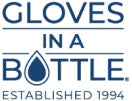
What Have Some Studies Found Out About Useful Vitamins for Eczema?
Eczema. For some people it’s the bane of their existence. No matter what they do, that dry, irritated, itchy skin just keeps on rearing its ugly head. We read a lot about what creams, lotions and ointments we can use to treat eczema and dry skin but we often forget that we can also help fight the symptoms of eczema from the inside. Of course I don’t mean eating your lotions. What I’m talking about is finding vitamins that could help you fight off the symptoms of eczema. Luckily for you, there are some studies that have looked into vitamins for eczema symptoms that have shown some very hopeful results.
A Vitamin a Day May Keep the Dermatologist Away
Even though our skin is on the outside of our body and is our own personal line of defense from irritants and unwanted pathogens, we may actually help keep it healthy from the inside by taking some vitamins that have been studied closely for their effects on eczema. This goes for eczema on the hands or any other part of the body. And sadly, no, your kid’s tasty Flintstone vitamins didn’t make the cut.
Vitamin D
Did you know that vitamin D is a key player in your skin’s barrier function?1 Seeing as how your skin’s main priority is to be your knight in shining armor against unwanted intruders, it’s so important to give it what it needs to stay healthy. Vitamin D not only helps with your skin’s cell growth (which you need if you have eczema as you’ll want to replace the damaged skin cells with new and healthy ones) but it also helps support your skin immune system which will kick in if any pathogens try to invade.1 Don’t just take my word for it though. According to a clinical study led by Gaeun Kim Ph.D., R.N. and Ji-Hyun Bae Ph.D., taking vitamin D supplements has shown to positively improve symptoms of eczema.2
Gamma Linoleic Acid
Ok, so you might have never heard of this supplement before but gamma linoleic acid (or GLA) is an essential fatty acid that’s found in the seeds and oils of plants like evening primrose, borage and blackcurrant.3,4 The good news is that a 2014 study that was published in the journal Advances in Therapy found that GLA could help with the symptoms of eczema.3 How they think it works is that eczema might be linked with the body not being able to metabolize essential fatty acids the right way.3 Taking GLA could help with the metabolism process which means that it helps alleviate the possible cause (or one of the possible causes) of eczema.3More research is still being done but it’s a good start, wouldn’t you agree?
Vitamin C
We all know vitamin C and how good it is for us but what does it have to do with eczema? Vitamin C is a great antioxidant and is needed to produce collagen which helps with our skin’s elasticity and firmness.1 Taking vitamin C helps to keep our skin healthy as well as hydrated. In some studies, they have found that vitamin C may help our skin barrier function and help reduce water loss, which helps to keep our skin more hydrated.1We all know that part of the problem with eczema is how dry our skin is so anything that helps keep our skin hydrated is welcome!
Even though studies are always being done to help us learn more about potential vitamins for eczema, it goes without saying that if you try anything new and you have any doubts, always talk to your dermatologist first. Before you start making gama linoleic acid soup with a garnish of vitamin D for dinner in hopes to cure your eczema, remember to take care of your skin from the outside by using an effective and active skin repair lotionlike Gloves In A Bottle or Skin MD Natural Shielding Lotion to help heal and prevent future eczema break-outs. Paired with the right vitamins, you never know – your eczema might just be a thing of the past.
1https://www.healthline.com/nutrition/vitamins-for-dry-skin
